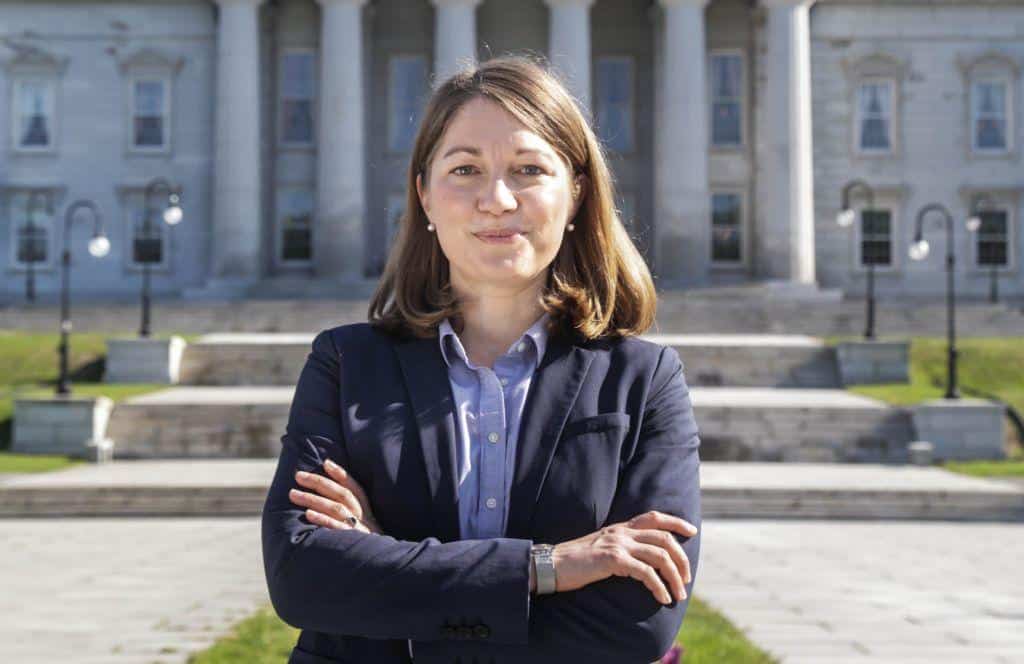By Lt. Governor Molly Gray
A year and a half after the onset of the pandemic, Vermont remains in the midst of ongoing recovery efforts. While there is so much uncertainty about the future, one thing we can be sure of is that our state is in a unique position to emerge from this pandemic stronger than ever.
Thanks to the hard work of our Congressional delegation, Vermont is set to receive $2.7 billion in federal aid through the American Rescue Plan as well as potential additional funds from the Build Back Better Agenda. We have a responsibility to ensure these one-time funds result in lasting investments for our working families, communities, and future generations of Vermonters.
From the day I took office, my commitment has been to give Vermonters a seat at the table and a voice in the conversation. For that reason, my focus since the Legislature adjourned in May has been the Recover Stronger Tour, where I spend time meeting directly with Vermonters impacted by the pandemic. Here are some of the top concerns shared with me over the past two months:
Housing
Like so many, I’ve been a renter all my adult life and know first-hand how expensive it is. But the pandemic has made things worse. It’s no secret that Vermont is also facing a workforce shortage, and the two are clearly connected. Vermonters are struggling to live where they work and work where they live. The Lamoille Housing Partnership (LHP) shared that in August, they had just three available apartments in their nearly 300 unit portfolio. Only one of these units was subsidized, and LHP received 71 applications for this single unit. Overall, LHP’s waiting list runs 486 applicants deep. Meanwhile, Mark Frier, owner of several Stowe and Waterbury establishments, is one of many employers around the state who has spoken candidly with me about his struggle to find restaurant staff and cooks. The main issue? Housing is simply no longer available or affordable for working Vermonters in the Stowe area. In order to begin addressing this crisis, Vermont must commit to a state-wide housing audit to determine the scope of the issue.
Childcare
While it’s always been a struggle for Vermont families to find and afford childcare, the pandemic has only exacerbated the crisis. In South Hero, I met with a woman named Molly, who had to leave a job that she loved because the cost of childcare for her three children was simply too much to afford during the pandemic. Molly is one of the 5 million American women who left the workforce this year in large part due to caregiving responsibilities. While up in St. Albans, I met with the incredible employees at Northwestern Counseling & Support Services (NCSS) who shared that in the 900 square miles served by NCSS, there were only 44 total openings for childcare, 17 of which were slots for infants and toddlers. Addressing this childcare crisis will require that we pay childcare providers what they deserve and provide loan forgiveness for those who choose a career in early education.
Mental Health
We know all too well that the pandemic has exacerbated the need for mental health and support services, but the demands on providers are reaching unimaginable levels. Clinicians I met with at the Howard Center, Health Care & Rehabilitation Services (HCRS), Spectrum Youth and Family Services, and at the Central Vermont Hospital, all spoke about the rapid rise in Vermonters, especially young people, in need of mental health and support services. Resources are stretched incredibly thin, while organizations with dwindling numbers of staff struggle to meet increasing caseloads. Staff were clear that in order to attract and retain workers, their organizations need sustained funding and a cost of living adjustment that’s included in state funding.
Telehealth
I cannot name a single community from Weston to West Danville where I have not heard how a lack of broadband access has directly impacted the daily lives of Vermonters. What has surprised me most, however, is the extent to which patients and providers alike have come to rely on telehealth to access and provide health care, including mental health and support services. When asked about the greatest barrier to care for clients at HCRS in Springfield, Warren Sergent, the informations systems director was unequivocal, “broadband.” I heard the same from the leaders at Rutland Regional Medical Center who explained that while telehealth is not right for every patient, for every patient it must be a right. Closing the broadband gap must include permanent coverage for telehealth for Vermonters along with the tools and training necessary to access care.
Strategic investments in these areas are paramount. While daunting, these challenges are not insurmountable. We have before us a once-in-a-generation opportunity to do things differently.
My Recover Stronger Tour is far from over and will continue in communities throughout the fall. As I continue to assess the need and prepare recommendations for the Legislature, governor, and Congressional delegation, I want to hear from you. To share your ideas, you can contact me directly via my official website or follow along at @LtGovGray.
Molly Gray is the lieutenant governor of Vermont.




